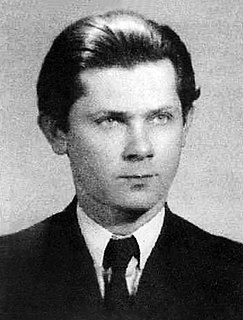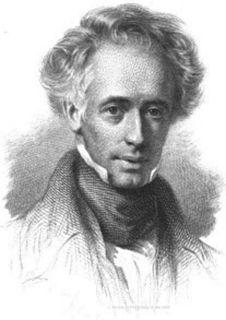A Quote by Saint Basil
All these stupendous objects are daily around us; but because they are constantly exposed to our view, they never affect our minds, so natural is it for us to admire new, rather than grand objects. Therefore the vast multitude of stars which diversify the beauty of this immense body does not call the people together; but when any change happens therein, the eyes of all are fixed upon the heavens.
Related Quotes
By close-ups of the things around us, by focusing on hidden details of familiar objects, by exploring commonplace milieus under the ingenious guidance of the camera, the film, on the one hand, extends our comprehension of the necessities which rule our lives; on the other hand, it manages to assure us of an immense and unexpected field of action.
The entire routine of our memorized acquisitions, for example, is a consequence of nothing but the Law of Contiguity. The words of a poem, the formulas of trigonometry, the facts of history, the properties of material things, are all known to us as definite systems or groups of objects which cohere in an order fixed by innumerable iterations, and of which any one part reminds us of the others.
Inanimate objects are always correct and cannot, unfortunately, be reproached with anything. I have never observed a chair shift from one foot to another, or a bed rear on its hind legs. And tables, even when they are tired, will not dare to bend their knees. I suspect that objects do this from pedagogical considerations, to reprove us constantly for our instability.
The night comes for the purpose of checking our busy employment, and introducing an interval of repose between the links of our action and our aspiration. It draws its dim curtain around the field of toil. It buries the objects of our handiwork in darkness, and involves them with uncertainty. It comes to the relief of the exhausted body and the tired brain. Our powers, harmonizing with the diurnal revolutions of the earth, fail with the failing light, and a merciful Providence casts around us this mantle of shadow, and snatches us from our occupation.
Fashion is not a real element of beauty in external objects; and to persons who possess a good endowment of Form, Constructiveness and Ideality, intrinsic elegance is much more pleasing and permanently agreeable, than forms of less merit, recommended merely by being new. Hence there is a beauty which never palls, and there are objects over which fashion exercises no control.
There is no substitute under the heavens for productive labor. It is the process by which dreams become realities. It is the process by which idle visions become dynamic achievements. Most of us are inherently lazy. We would rather play than work. We would rather loaf than work...But it is work that spells the difference in the life of a man or woman. It is stretching our minds and utilizing the skills of our hands that lift us from mediocrity.
Perception without the perceiver in meditation is to commune with the height and depth of the immense. This perception is entirely different from seeing an object without an observer, because in the perception of meditation there is no object and therefore no experience. can, however, take place when the eyes are open and one is surrounded by objects of every kind. But then these objects have no importance at all. One sees them but there is no process of recognition, which means there is no experiencing.
Our neighborhood - this solar system, the cosmos, actually - is so much more vast and amazing than the paltry headlines, insanity, and politics crammed at us daily as so-called news. The beauty of the hood and discoveries that await us are deserving of our attention and mandatory to our survival as a species.
The identifying personal association with objects, which are not personal, is an important modern experience - our real association, the strands of our feelings about the objects that surround us. It's also because they are so familiar, we don't think of them as important in the world, but actually they are the world. We are living in a very material world.










































